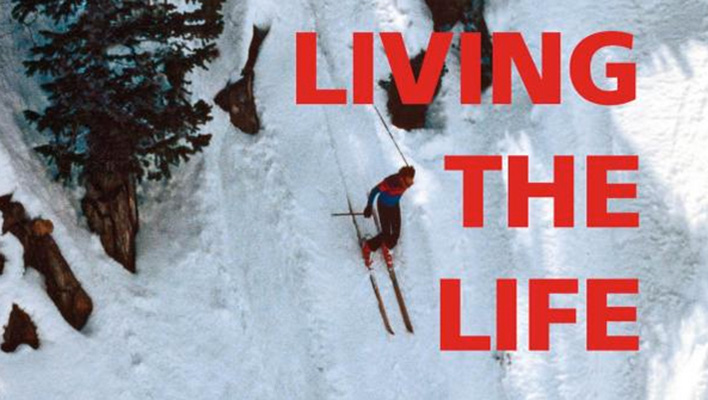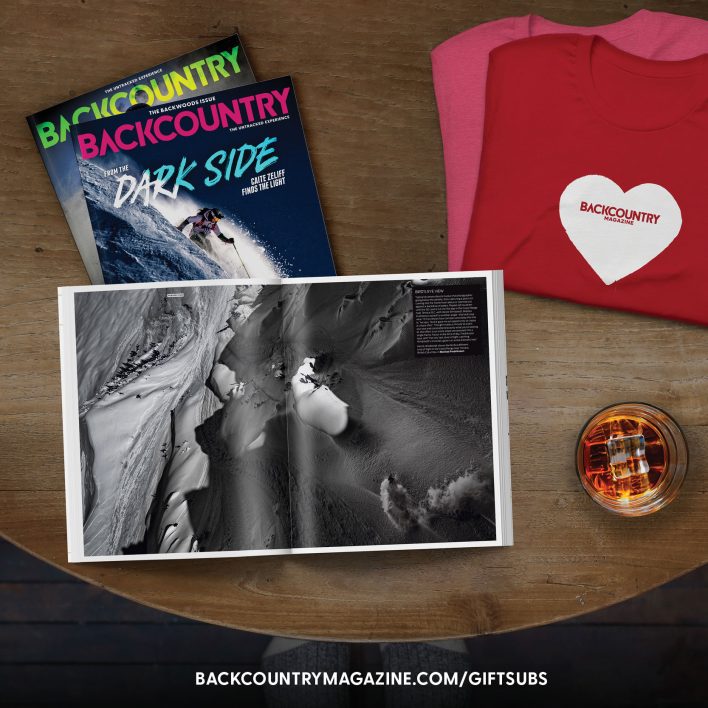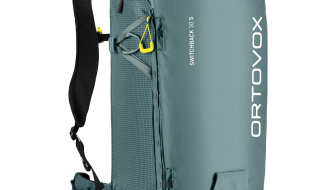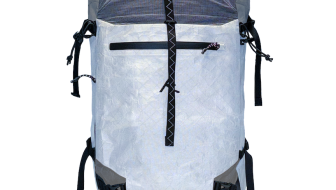Ever since childhood, author David Rothman’s life has revolved around skiing. As an adult, he decided to bring his passion for writing and skiing together as he’d seen done in the climbing and alpine journals. He didn’t want to pen stories on the flashy latest trends or how tos—but rather to bring out the characters, places, humor and loss he’s experienced both on and off the steeps. His stories have been published in Couloir, Sports Guide, Skiing and more. Creative Editor Sean Prentiss caught up with Rothman to talk about his latest book, a collection of 38 stories called Living the Life: Tales from America’s Mountains and Ski Towns. For a quick review of the book, see the December issue.
Sean Prentiss: Where did you come up with the idea for Living the Life?David Rothman: Many years ago I realized I wanted to bring together two of the things I enjoy most—skiing and writing. I have been skiing since I was a boy and had been an NCAA racer and then stayed deeply involved in the sport as I also pursued my writing life…and it just occurred to me that it was absurd not to bring these two passions together. So I began writing about anything I could sell to the ski journals and began appearing in Powder, Skiing, Couloir, Sports Guide and others. Over time, I realized that I was interested in something more. Other environment sports, especially mountaineering, fishing, sailing, trekking and more recently surfing, rock climbing and even golf, have great—even exalted—classics, but there was little like that for skiing.
So I became less interested in writing about gear, or instruction and technique, or competition, or travel and more and more interested in writing about how we actually live when we are living as skiers.
It’s ultimately the people and our way of life that make the sport what it is. That’s what interests me most. Most ski writing treats the people in it as if they don’t have real lives. If we can illuminate what our lives are really like in a way that includes the skiing, that’s when we will really begin to get at the core of why the sport matters so much to us.
SP: Many of the essays in the book were originally published in the journals you mentioned. When did you know you had a book out of these various essays?
DR: The idea came to me when I was working with Craig Dostie in the old days at Couloir. I think it may have been when I wrote that essay about skiing the Thunderbolt on Mt. Greylock in Massachusetts with my old friend Paul Muscat. In that essay I felt I was able to combine the story with the people, with some humor, with the place and its history, all ending with the description of a drive back into the heart of Manhattan past the working girls on 10th Ave., after a day on a real (and really cold) mountain, simply for the fun of it and to record that experience.
I had this sense that I was finding a way to talk about what we do and why. I felt energized and connected, not just as a skier but as a writer. I had the sense that I could turn my attention to thousands of small details that we all see but that had never been described—from what it really feels like to stand in a muddy parking lot after a great day on the hill, to the ways people dress in Crested Butte, to the death of a student-athlete I knew and loved, and much more that had never been seen in just quite this way, through just quite this lens.
SP: Before talking with you, I searched “ski books” in Google. Almost all the results turned up how-to books or biographies on famous skiers. Why doesn’t skiing have a deep literary tradition?
DR: Well, first of all, recreational skiing changed dramatically coming into this century, and downhill of any kind is relatively new. Compare that with, say, running or fishing or sailing, and so on, which have existed for thousands of years, and you see one reason the writing has lagged.
Another is that skiing presumably developed first in populations in environmentally hostile places, so there were fewer people and fewer resources. The sport truly comes from the fringe of civilization.
The transformations of the sport and its development in the heart of Europe in the late 19th and early 20th century changed everything. The biggest innovations in this regard were probably the discovery of the telemark and Cristiana turns, and the gear that followed in their wake to make those turns that much more fun. But this means we’ve had little more than 150 years even to begin to think about it, and these things take time.
SP: You write that skiing is recreation but also re-creation. Can you talk about this idea of creating ourselves anew through skiing?
DR: Many languages agree that sport is not something frivolous, but a source of great consolation and renewal in life, which is what the word “recreation” literally tells us, straight up.
What I’ve taken to calling “environment sports” are distinguished in this world of recreation because, while they can be social, they can also be done utterly alone. Their core definition is that they bring us into a contemplative relation with the natural world: geography, weather, plants and animals and so on. And because they have no other purpose than the relationship itself, they renew us.
This kind of attentiveness to the world around is part of the key to any happy and healthy life. And recreation reminds us of this by requiring our attention in a sustained way. A good comparison that reveals what this all means might be to friendship. Friendships can be useful for business or politics, just as one can ski for a living; but the real value of a meaningful friendship lies in the friendship itself, and one can only develop such a relationship by actively pursuing it and engaging in it. “Recreation” involves a similar kind of relation, with others, with ourselves, and with the world. We renew ourselves through recreation by…paying attention to meaningful relationships.
—
Find a copy of David Rothman’s book, Living the Life: Tales from America’s Mountains & Ski Towns at conundrum-press.com.











Related posts: